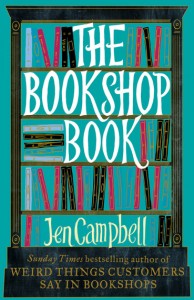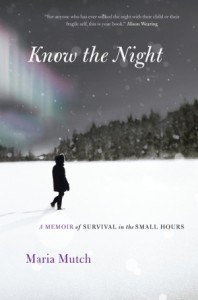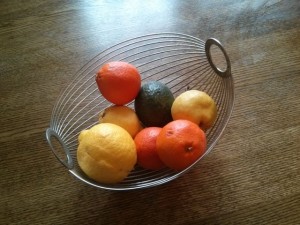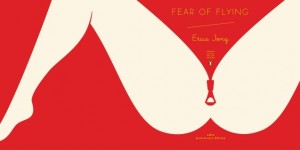July 2, 2014
Miriam Toews and Lisa Bird-Wilson
 Things are busy around here with the usual summer things (swimming pools, barbecues, celebrating Canada Day at Queen’s Park, not sleeping at night, lazy days, beer and chicken wings with my husband on a rooftop patio) and with a top-secret project that is going to keep things quieter on the blog front this summer. Which is as it should be–you’re all out gallivanting anyway. But I did want to share two amazing things I’ve been up to lately in celebration of two really excellent books.
Things are busy around here with the usual summer things (swimming pools, barbecues, celebrating Canada Day at Queen’s Park, not sleeping at night, lazy days, beer and chicken wings with my husband on a rooftop patio) and with a top-secret project that is going to keep things quieter on the blog front this summer. Which is as it should be–you’re all out gallivanting anyway. But I did want to share two amazing things I’ve been up to lately in celebration of two really excellent books.
The first is All My Puny Sorrows by Miriam Toews, which I was lucky enough to review for Canadian Notes and Queries 90, their summer issue. It’s out now. The review was a pleasure to write, to be working with material that was just so good. The book is the most hilarious heartbreak I’ve ever experienced. A teaser of my review:
“While markedly different in style and tone, All My Puny Sorrows reads as an interesting companion to Sonali Deraniyagala’s memoir, Wave, another book about grief and trauma, in which Deraniyagala recounts the loss of her family in the 2006 Boxing Day tsunami. Both books are haunted by narrators whose voices are measured and understated, existing to evoke the dead and the past rather than to illuminate the present, partly because the narrator in the present is a hollow shell of grief. And that grief itself remains a quiet presence in the text, until it doesn’t, bursting onto the page with a torrent of rage. Interestingly, both narrators enact their rage by making obnoxious phone calls, describing themselves as “haunting” the calls’ recipients on whom they (inappropriately, but who can blame them for that?) lay blame for their tragedies.
Unlike Wave, however, and just like everything Toews has ever written, All My Puny Sorrows is also terrifically funny. The young version of Elf is a wonderful character, with her dramatic flares and karate-chop gestures. The most hilarious scene in the book takes place at a funeral (of course) when a young child steps up and begins to eat the ashes of the deceased. Elf and Yolandi’s mother emerges as the real hero of this story, a woman of unlimited faith and optimism (and who, in shock after her daughter’s death, answers every utterance with, “Ain’t that the truth”). And this is Yolandi’s revelation as well, that all this grief has not been put upon her alone, and that her mother, in her obsession with Scrabble games and detective novels, is trying to decode the mystery of things and put words together so they mean something, just as Yolandi herself is.”
 I am also very pleased with my interview with Saskatchewan Metis writer Lisa Bird-Wilson about her short story collection, Just Pretending. I read the book in early May and found it incredibly affecting. Bird-Wilson’s answers to my questions were thoughtful, challenging, provocative and profound–just as her book is. And a taste of that?
I am also very pleased with my interview with Saskatchewan Metis writer Lisa Bird-Wilson about her short story collection, Just Pretending. I read the book in early May and found it incredibly affecting. Bird-Wilson’s answers to my questions were thoughtful, challenging, provocative and profound–just as her book is. And a taste of that?
“Also, don’t you think there’s something a bit unfair about criticism that turns on the fact that stories made the critic feel bad? It’s unfortunate, but I’ve really noticed that audiences want you to read things that are funny—boy, they love that kind of thing. I find myself sometimes trying to excise funny bits from my stories and use them for readings—shame on me for bowing to the pressure but we all want to be liked, don’t we? I guess it’s human nature—we want to be able to laugh together—but in order to laugh together we also have to cry together sometimes. And sometimes we just laugh our way through the pain because there’s nothing else you can do.”
Reading the whole thing here.
June 26, 2014
Peach Girl by Raymond Nakamura & Rebecca Bender
 I had the pleasure of reviewing Peach Girl by Raymond Nakamura and Rebecca Bender for Quill & Quire. It’s a story about a feisty girl that depicts the gorgeous countryside of Japan, a country that was once my home. I definitely recommend it.
I had the pleasure of reviewing Peach Girl by Raymond Nakamura and Rebecca Bender for Quill & Quire. It’s a story about a feisty girl that depicts the gorgeous countryside of Japan, a country that was once my home. I definitely recommend it.
“In his engaging debut, author Raymond Nakamura puts a feminist bent on the Japanese folk tale Momotaro (Peach Boy).
In Nakamura’s version, a young girl emerges from a giant peach discovered on the doorstep of an elderly couple (who are, notably, a farmer and her husband). Momoko, which translates as “Peach Girl,” is a feisty creature determined to make the world a better place, a mission that involves ridding it of a child-eating ogre. Gently shrugging off her adoptive parents’ concerns for her safety, Momoko embarks on her quest with peach-pit armour for protection, plus a bundle of peach dumplings to eat on the way.”
You can read the whole review here.
June 8, 2014
Summer Reads
 I wrote a fun blog post for 49th Shelf last week about books with fun summer covers, including my favourite summer cover of all time which is All the Voices Cry by Alice Petersen.
I wrote a fun blog post for 49th Shelf last week about books with fun summer covers, including my favourite summer cover of all time which is All the Voices Cry by Alice Petersen.
And speaking of summer reads, Chatelaine has a bumper-crop of great books lined up in their Summer Reading Special. I am happy to have reviewed the memoir Glitter and Glue by Kelly Corrigan, about a young American woman whose eyes are opened to motherhood and the experiences of her own mother during a gig working as an au-pair for a widower and his children in Australia. I found the book touching and remarkable for its M Word associations. You can read my take on it here.
Some summer reads I’m looking forward to getting to soon are Mating For Life by Marissa Stapley, The Vacationers by Emma Straub, Thunderstruck by Elizabeth McCracken and Based on a True Story by Elizabeth Renzetti.
June 6, 2014
Market Wine
 I’ve had no blogging mojo this week—sometimes this happens. I have also been incredibly tired, a condition that will not be ameliorated by my attendance on Harriet’s school trip to the High Park Nature Centre this afternoon. With the baby in tow. In my experience, shepherding 20 kids on the subway is one of the more crazy-making circumstances of one’s life. But the weather is beautiful, and I think we’re going to have a great afternoon. Tonight’s plan is wine on the porch, followed by Top of the Lake. The wine is from the Farmers’ Market, which means that the Farmer’s Market (and summer) have returned to us, and also that wine is now permitted to be sold at local markets, and both of these points are incredibly pleasing. So I am looking forward to tonight, though not so much, because I find that evenings that are too anticipated usually result in my cleaning up one of my children’s vomit. Somehow, they just know.
I’ve had no blogging mojo this week—sometimes this happens. I have also been incredibly tired, a condition that will not be ameliorated by my attendance on Harriet’s school trip to the High Park Nature Centre this afternoon. With the baby in tow. In my experience, shepherding 20 kids on the subway is one of the more crazy-making circumstances of one’s life. But the weather is beautiful, and I think we’re going to have a great afternoon. Tonight’s plan is wine on the porch, followed by Top of the Lake. The wine is from the Farmers’ Market, which means that the Farmer’s Market (and summer) have returned to us, and also that wine is now permitted to be sold at local markets, and both of these points are incredibly pleasing. So I am looking forward to tonight, though not so much, because I find that evenings that are too anticipated usually result in my cleaning up one of my children’s vomit. Somehow, they just know.
Also pleasing, I wrote a review of the memoir, Birding With Yeats, by Lynn Thomson in the National Post. It’s a curious book which only became weirder the more I thought about it, which I mean as an endorsement, actually. The fact that I thought about it so much, mostly. I was also reading it at the same time I was reading A Siege of Bitterns and Pluck. So many birds. It inspired me to create a list of these books and more–as ever, putting a bird on it is popular.
And I was thrilled by this review of The M Word in The Winnipeg Review this weekend by Angeline Schellenberg. She got the book exactly, and wrote about it so well. I loved, “Some moms decorate Barbie cakes in their sleep. The M Word is a kind of What to Expect When You’re the Rest of Us” and “A book about motherhood that includes those who never gave birth? Those who’ve been pregnant but never held a child? Halleluiah! Finally: a conversation with no “us versus them.” Here is only “us,” those who desire to “be connected by this understanding of what it is to love and celebrate your children.” The M Word offers what mothers (new and old) need most: to know we’re not alone.” So proud of this, and pleased that this book continues to find its way into the world.
May 21, 2014
“Helter Skelter”
I am thrilled beyond measure to have a new published short story in the world, “Helter-Skelter” appears in The New Quarterly 130, and my name is on the cover, which means that you can sing this song about me now. It’s a great issue of a magazine that has done so much to support my work and which I credit for most of my career–both The M Word and my job at 49thShelf were spun out of their publication of my essay “Love is a Let-Down” a few years ago. I’m so pleased to return to their pages, and in fiction to boot. And it’s pretty wonderful that this story has finally found a home.
You can buy a digital or print edition of the magazine at the TNQ website, or wherever good magazines are sold.
May 15, 2014
The M Word: What Motherhood Taught Me About My Abortion
And here it is! My essay from The M Word appears on The Huffington Post Canada, and I’m so relieved and bolstered by the feedback I’m receiving. Hope you will enjoy reading it.
April 14, 2014
Rereading Fear of Flying now up at Toronto Review
I am so pleased to have my essay, “Rereading Fear of Flying: On Not Being Pregnant in Mid-Air With Isadora Wing,” featured on The Toronto Review of Books today. It’s sort of a companion to my piece in The M Word, so the timing is particularly nice.
March 28, 2014
Saying Goodbye to Bookstores
 This weekend is, apparently, Annex Book City’s last. I’ve not been in for awhile because it’s just not been the same, but will pop in for a last goodbye. I continue to be heartbroken, but one stumbles on. Still very much hoping for a new bookshop landing in the neighbourhood, and in the meantime, will support our other locals–Parent Books (in their new location), Little Island Comics, and Bakka Phoenix, all close by. But yes, it’s terrible. And isn’t it funny how fast one becomes accustomed to “terrible,” which is a point Jane Jacobs makes in Dark Age Ahead, which I read last week. and which, apparently, Book City did the launch for, as it was her local bookstore too, so there you go. So I am by no means living in a bookstore desert, but I have such sympathy for those people who are, though I fear that already so many have forgotten what they’re missing.
This weekend is, apparently, Annex Book City’s last. I’ve not been in for awhile because it’s just not been the same, but will pop in for a last goodbye. I continue to be heartbroken, but one stumbles on. Still very much hoping for a new bookshop landing in the neighbourhood, and in the meantime, will support our other locals–Parent Books (in their new location), Little Island Comics, and Bakka Phoenix, all close by. But yes, it’s terrible. And isn’t it funny how fast one becomes accustomed to “terrible,” which is a point Jane Jacobs makes in Dark Age Ahead, which I read last week. and which, apparently, Book City did the launch for, as it was her local bookstore too, so there you go. So I am by no means living in a bookstore desert, but I have such sympathy for those people who are, though I fear that already so many have forgotten what they’re missing.
Last weekend, I was interviewed for this article by Andrea Gordon on how Book City is one of three bookstores closing in Toronto this month, along with The World’s Biggest Bookstore (which held me so in thrall as a child that I did a school project on it in grade 5. It was the most magical place I’d ever been), and The Cookbook Store, which was another favourite destination more recently, right across the road from the Toronto Reference Library. The piece is a nice look at these places which make our city special, places that are getting lost thanks to rising rents and pressure from Amazon’s discounts, not to mention longterm effects of Chapters Indigo’s predatory practices, back when they could afford such things (which has, of course, rendered Bloor West Village a bookstore desert, among many other examples).
 I am too much of an optimist to wholly give over to the dark age ahead though. Something good will come of all of this, and in the meantime, I am pleased that my thoughts on loving and losing Book City are going to be included in The Bookshop Book by Jen Campbell, which will be out in the UK in October. About the book: “From the oldest bookshop in the world, to the smallest you could imagine, The Bookshop Book examines the history of books, talks to authors about their favourite places, and looks at over two hundred weirdly wonderful bookshops across six continents (sadly, we’ve yet to build a bookshop down in the South Pole). The Bookshop Book is a love letter to bookshops all around the world.” I’m very excited to be a part of it.
I am too much of an optimist to wholly give over to the dark age ahead though. Something good will come of all of this, and in the meantime, I am pleased that my thoughts on loving and losing Book City are going to be included in The Bookshop Book by Jen Campbell, which will be out in the UK in October. About the book: “From the oldest bookshop in the world, to the smallest you could imagine, The Bookshop Book examines the history of books, talks to authors about their favourite places, and looks at over two hundred weirdly wonderful bookshops across six continents (sadly, we’ve yet to build a bookshop down in the South Pole). The Bookshop Book is a love letter to bookshops all around the world.” I’m very excited to be a part of it.
And for more signs of life in the indie bookshop game? Oh, do check out the blog of Parnassus Books in Nashville, which is co-owned by the remarkable Ann Patchett. So so filled with bookish goodness.
March 23, 2014
The Age by Nancy Lee
 My review of The Age by Nancy Lee appeared in The Globe and Mail this weekend:
My review of The Age by Nancy Lee appeared in The Globe and Mail this weekend:
It seems fitting, if sinister, to suggest that something in the air could be responsible for a strange tension emanating lately from the nation’s western edge. The Age – the long-awaited first novel by Nancy Lee, who won acclaim with the short-story collection Dead Girls– joins terrific recent fiction by Zsuzsi Gartner and Caroline Adderson to form a subgenre of Vancouver literature that puts the “domestic” in domestic terrorism. These works explore female characters’ relationships to extremism to complicate notions of home and family.
Lee’s title refers to two pivotal ages, her plot born of their intersection. The first is the age in which her story takes place, 1984, which, thanks to Orwell, was always going to be a storied year, even if Soviet warships hadn’t been gathering in the Atlantic with the Doomsday Clock ticking close to midnight. It would be a peculiar time in which – and here’s the second title reference – to come of age, seemingly on the brink of annihilation, as is the case for Gerry, Lee’s misfit protagonist.
Read the whole thing here.
https://www.youtube.com/watch?v=L2BviXN6yhk
February 28, 2014
Review in The National Post: Know the Night
 I reviewed Know the Night: A Memoir of Survival in the Small Hours by Maria Mutch in the National Post, and writing the piece was like building something out of materials which are more exquisite than anything I’ve ever worked with. The book is weird, wonderful and enthralling, and to call it a memoir about parenting or autism is to reduce the book to something finite, which it isn’t. The book is bigger than all of that–it’s about books, jazz, lists, loneliness, the whole world, and it’s a love story too.
I reviewed Know the Night: A Memoir of Survival in the Small Hours by Maria Mutch in the National Post, and writing the piece was like building something out of materials which are more exquisite than anything I’ve ever worked with. The book is weird, wonderful and enthralling, and to call it a memoir about parenting or autism is to reduce the book to something finite, which it isn’t. The book is bigger than all of that–it’s about books, jazz, lists, loneliness, the whole world, and it’s a love story too.
‘”There is nothing quite like caring for a child alone, while the rest of the world is sleeping. In the dark, reality loses its shape, time slows as the clock ticks towards sunrise. It is easy to become unhinged. In her first book, Know the Night, Maria Mutch documents her own experiences during what she calls “the small hours.” For two years her oldest son, Gabriel, slept very little. She was either up caring for him, or, anticipating he would soon awaken, be unable to sleep herself. It was an arrangement Mutch calls a product of “parenting’s alchemical gist: the love for the child … mitigates everything else; what would seem anathema to others becomes … the status quo.'”








